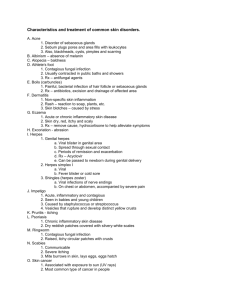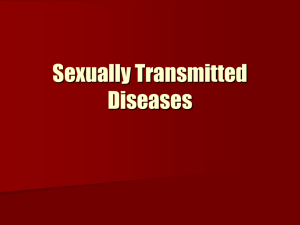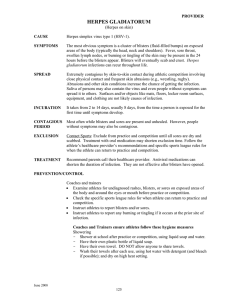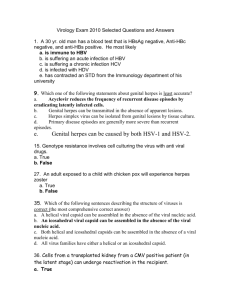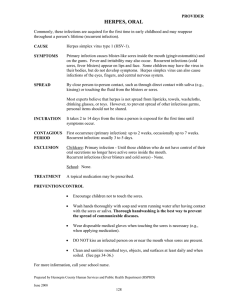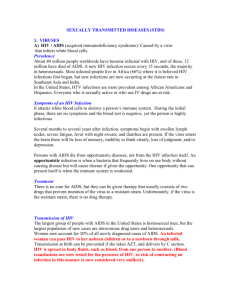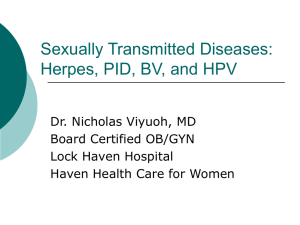INSTRUCTION SHEET: GENITAL HERPES University of North Carolina Wilmington
advertisement
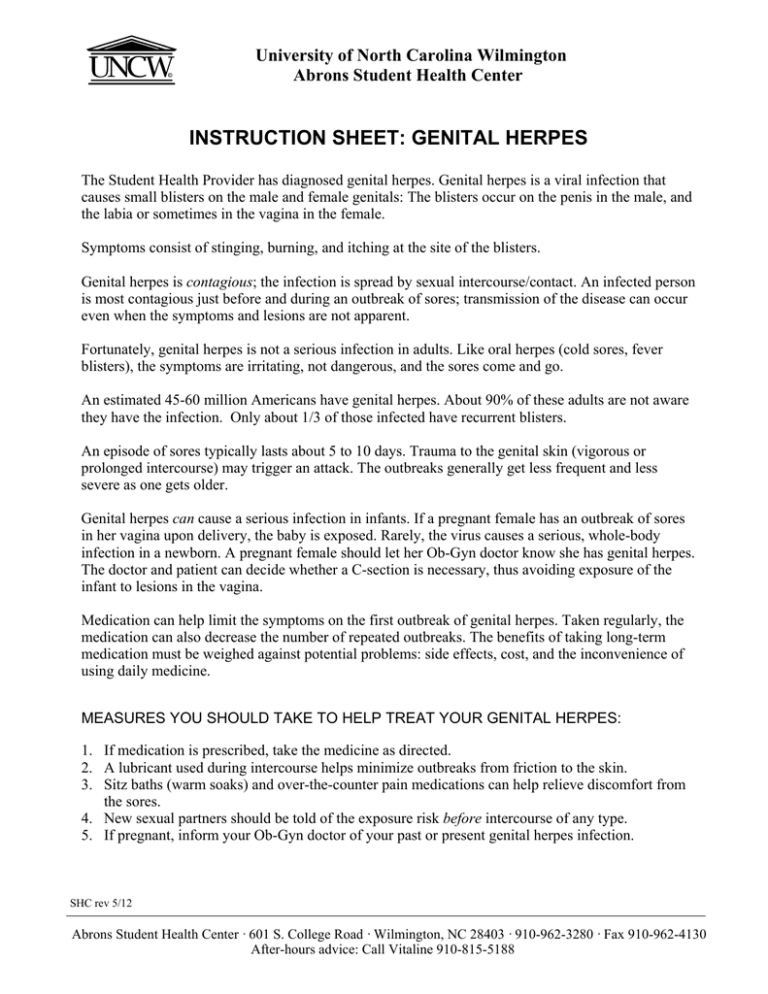
University of North Carolina Wilmington Abrons Student Health Center INSTRUCTION SHEET: GENITAL HERPES The Student Health Provider has diagnosed genital herpes. Genital herpes is a viral infection that causes small blisters on the male and female genitals: The blisters occur on the penis in the male, and the labia or sometimes in the vagina in the female. Symptoms consist of stinging, burning, and itching at the site of the blisters. Genital herpes is contagious; the infection is spread by sexual intercourse/contact. An infected person is most contagious just before and during an outbreak of sores; transmission of the disease can occur even when the symptoms and lesions are not apparent. Fortunately, genital herpes is not a serious infection in adults. Like oral herpes (cold sores, fever blisters), the symptoms are irritating, not dangerous, and the sores come and go. An estimated 45-60 million Americans have genital herpes. About 90% of these adults are not aware they have the infection. Only about 1/3 of those infected have recurrent blisters. An episode of sores typically lasts about 5 to 10 days. Trauma to the genital skin (vigorous or prolonged intercourse) may trigger an attack. The outbreaks generally get less frequent and less severe as one gets older. Genital herpes can cause a serious infection in infants. If a pregnant female has an outbreak of sores in her vagina upon delivery, the baby is exposed. Rarely, the virus causes a serious, whole-body infection in a newborn. A pregnant female should let her Ob-Gyn doctor know she has genital herpes. The doctor and patient can decide whether a C-section is necessary, thus avoiding exposure of the infant to lesions in the vagina. Medication can help limit the symptoms on the first outbreak of genital herpes. Taken regularly, the medication can also decrease the number of repeated outbreaks. The benefits of taking long-term medication must be weighed against potential problems: side effects, cost, and the inconvenience of using daily medicine. MEASURES YOU SHOULD TAKE TO HELP TREAT YOUR GENITAL HERPES: 1. If medication is prescribed, take the medicine as directed. 2. A lubricant used during intercourse helps minimize outbreaks from friction to the skin. 3. Sitz baths (warm soaks) and over-the-counter pain medications can help relieve discomfort from the sores. 4. New sexual partners should be told of the exposure risk before intercourse of any type. 5. If pregnant, inform your Ob-Gyn doctor of your past or present genital herpes infection. SHC rev 5/12 Abrons Student Health Center · 601 S. College Road · Wilmington, NC 28403 · 910-962-3280 · Fax 910-962-4130 After-hours advice: Call Vitaline 910-815-5188
